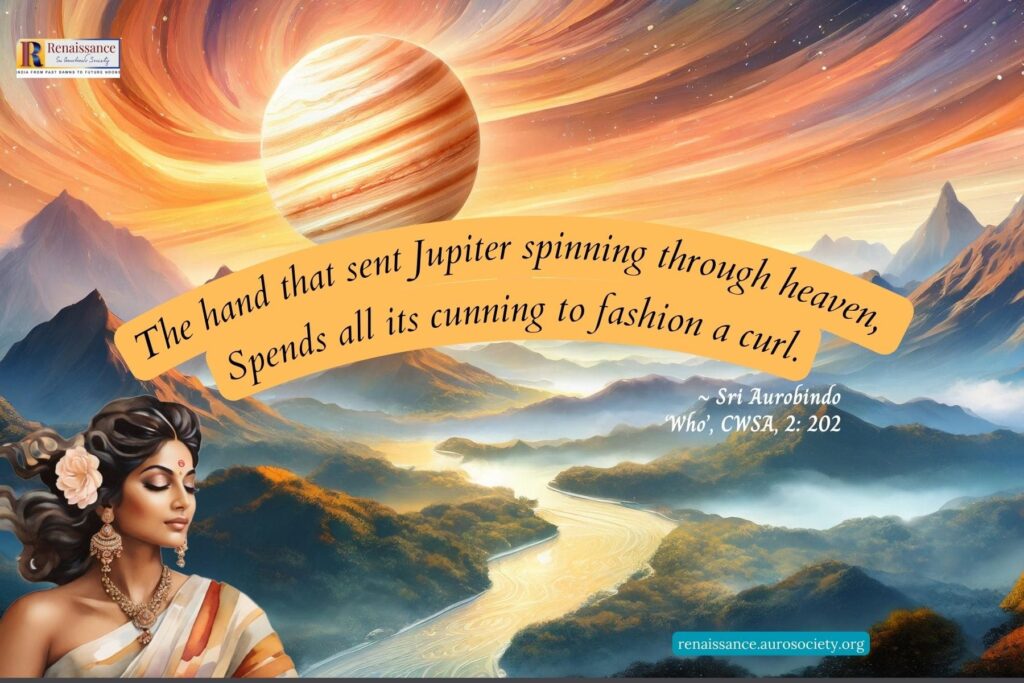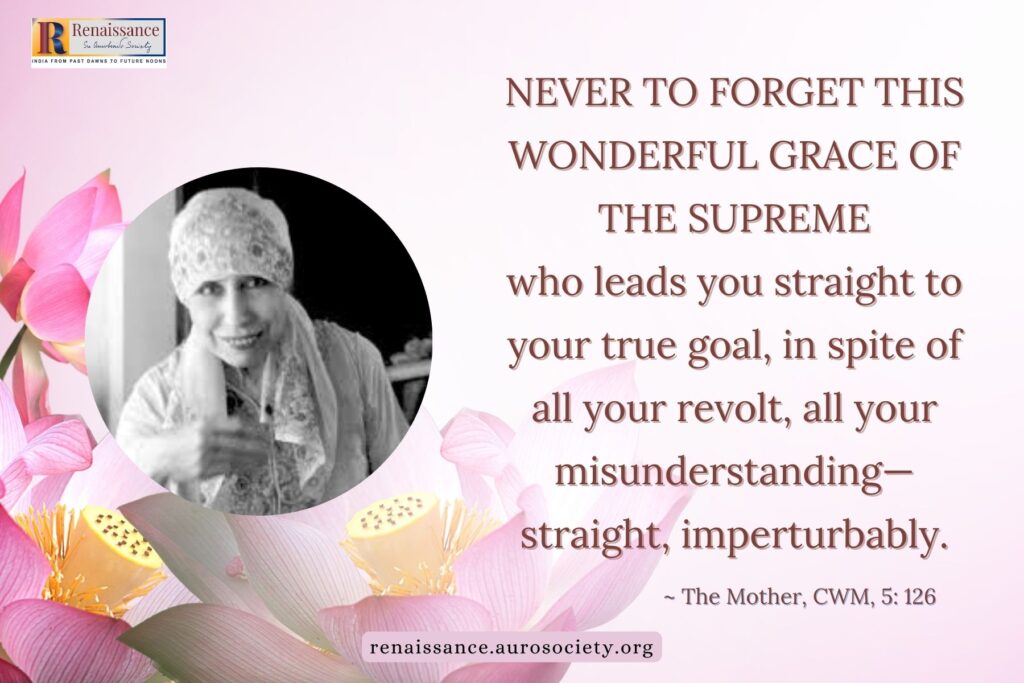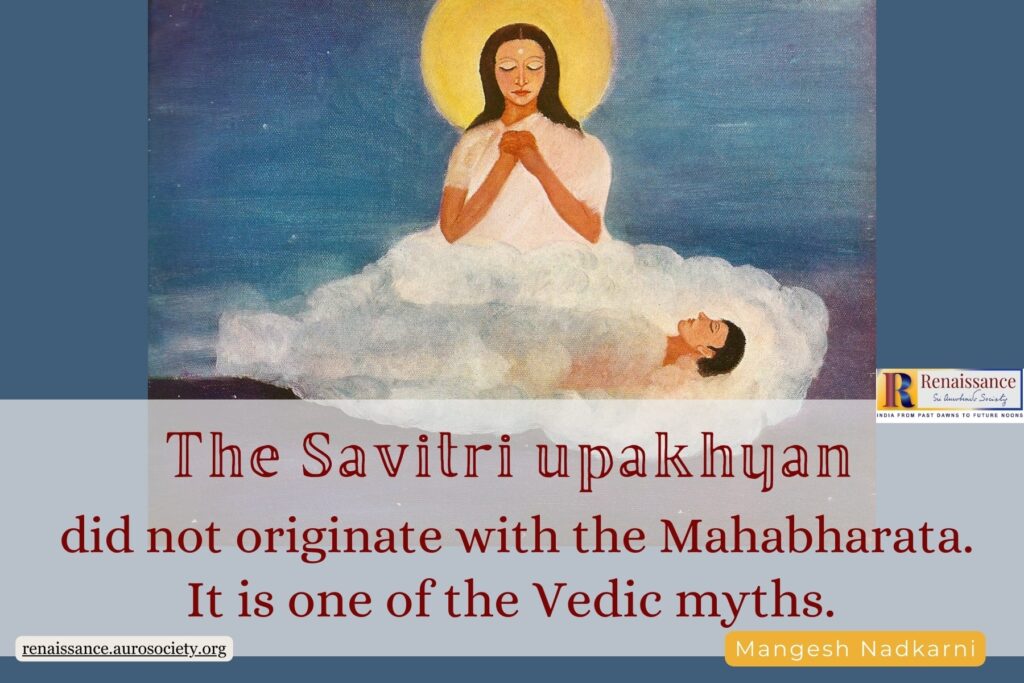Namaste!
Modern, rational, individualistic mind is preoccupied with what it considers as ‘progressive’ values such as Freedom and Choice. My Choice. Your Choice. Everyone’s Choice. Freedom of Choice. The assumption often is that having full freedom to make one’s choices is all one needs to be an individual, to be oneself, to feel empowered. And any attempt to curb any such Freedom to Choose is regressive, narrow-minded and, therefore, completely unacceptable.
In its more extreme sense, it could also mean that no particular choice is wiser or better than the other because of the other ‘modern’ value of Equality. Because all are equal, there is no place for any form of hierarchy in this modern mentalised view of world and life, and all choices are merely different expressions of free individuality and hence empowering for the individual.
Not surprisingly, in today’s age driven mainly by an economic view of life and excessive-consumerism campaigns on Choice and Empowerment are often led by business corporations which have deep financial interest in having customers exercise the ‘right’ kind of choice. But hidden deep behind all the veils of this limited notion of Freedom of Choice, there may be an underlying kernel of truth, waiting for its time to be expressed. We must dig deeper to seek that kernel and bring it to light if we are to truly become a Free Individual.
We seek that truth when we ask the question – what is the nature of the choice we have to make, and how are we to make a choice? Choosing between two types of ignorance – for example, a choice between ignorant prejudices of modernity and ignorant prejudices of tradition – is hardly going to help us; only that choice which will help us grow progressively toward knowledge and wisdom will be a meaningful choice to make.
This requires that we must develop something within us, some faculty which can help us clearly distinguish between darkness and light, wrong and right, falsehood and truth, ignorance and knowledge. This is the work of viveka, “the intuitive discriminating reason which once active is hard to overcome by the powers of ignorance and error,” says Sri Aurobindo (CWSA, Vol. 14, p. 65).
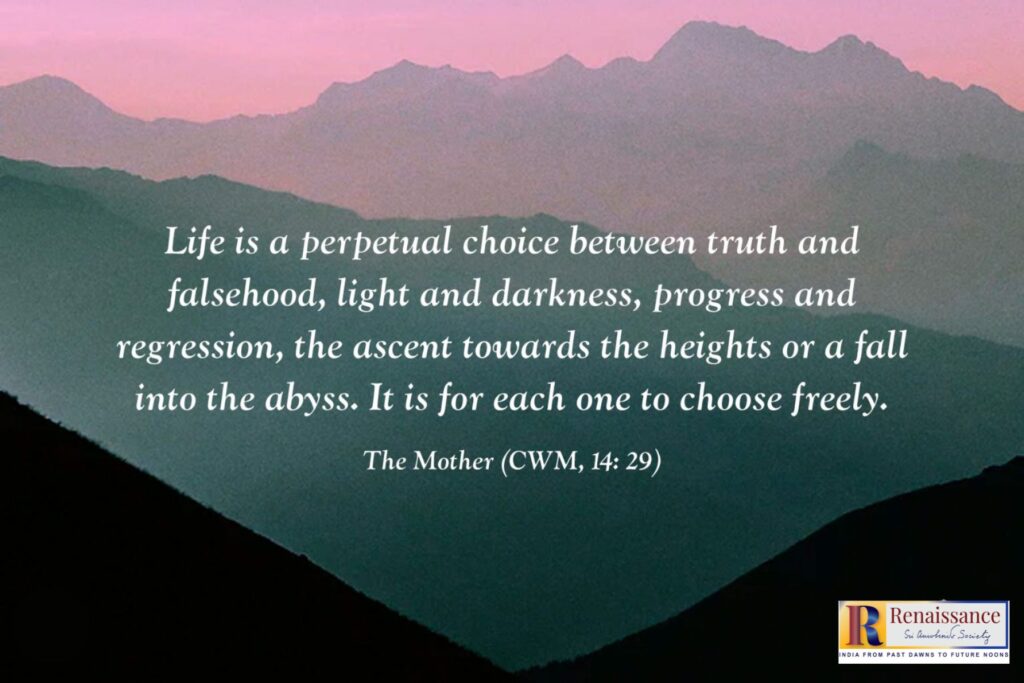
We dedicate one part of this issue of Renaissance to the theme of Choice and Wisdom, related to which is the faculty of viveka, the intuitive discriminating reason.
We find inspiration in the words of Sri Aurobindo when he speaks of the choice of the Aryan.
Wisdom implies the choice as well as the knowledge of that which is best, noblest, most luminous, most divine. Certainly, it means also the knowledge of all things and charity and reverence for all things, even the most apparently mean, ugly or dark, for the sake of the universal Deity who chooses to dwell equally in all. But, also, the law of right action is a choice, the preference of that which expresses the godhead to that which conceals it. And the choice entails a battle, a struggle. It is not easily made, it is not easily enforced.
Whoever makes that choice, whoever seeks to climb from level to level up the hill of the divine, fearing nothing, deterred by no retardation or defeat, shrinking from no vastness because it is too vast for his intelligence, no height because it is too high for his spirit, no greatness because it is too great for his force and courage, he is the Aryan, the divine fighter and victor, the noble man, aristos, best, the śreṣṭha of the Gita.
(Sri Aurobindo, CWSA, Vol. 13, pp. 442)
In our Guiding Light section, we highlight a few passages from the Mother’s works which enlighten us on the real, inner meaning behind the act of free choice and its significance for the path of seeking the truth of one’s being. Her words also guide us on the subtle but important difference between choice and preference.
We have selected two short stories for this issue. One is by one of India’s greatest storytellers of our times, Manoj Das who was a member of Sri Aurobindo Ashram since 1963 and has recently passed away. And the other is by a young writer and sādhak, Shyam Krishnakumar. Both these stories reveal the truth that only with a growing vivek-shakti we can grow in wisdom and make the right choice.
A bonus set of selections – this time from Sri Aurobindo’s writings – reveal for us the graded path to growing toward wisdom and true knowledge. It is a path that goes through the stages of:
- sattwic ācāra – custom and observance with knowledge that acts as a necessary conserving force,
- vicāra that questions the custom at times of transition,
- viveka that is an intuitive and inspired judgment gained by a previous purification of the organs of thought and knowledge,
- and jñāna, the true knowledge possible only through personal experience and realisation.
* * *
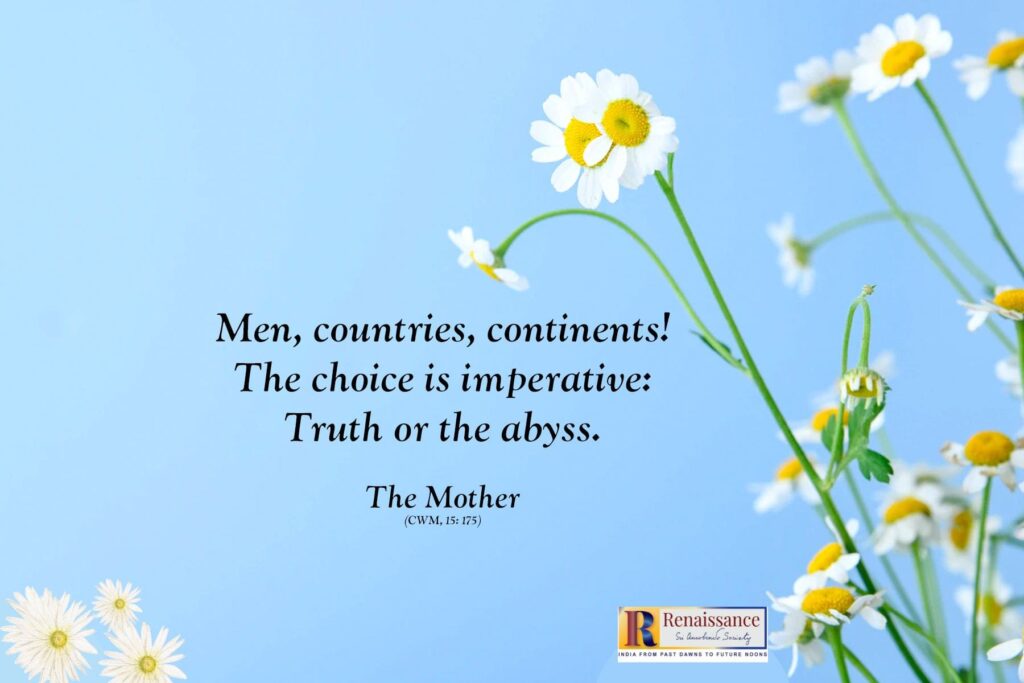
The oceanic world of Indian knowledge and wisdom traditions incorporates in its ambit not only an enormous and diverse corpus of stories, legends and lived customs and practices continuing through the millennia-long march of Indian civilisation, but also an equally large body of scriptures. The Indian word for the latter is shāstra.
The ancient Rishi in India was not only concerned about knowing and realising the Divine. He was equally interested to “know the world and life and to reduce it by knowledge to a thing well understood and mastered with which the reason and will of man could deal on assured lines and on a safe basis of wise method and order. The ripe result of this effort was the Shastra.” (CWSA, Vol. 20, p. 224)
“India has been preeminently the land of the Dharma and the Shastra,” wrote Sri Aurobindo (CWSA, Vol. 20, p. 9). The search for the inner truth and law of each human or cosmic activity, its dharma, had occupied the greatest of our seers, sages and thinkers.
Once found, the application of dharma in life was systematically elaborated in shāstra. Shāstra essentially means any systematised teaching and science; ancient India saw that each department of life, each line of activity, each subject of knowledge had its science or shāstra. The same name was given also to the highest spiritual knowledge, to suggest these shāstras or scriptures will serve as “lamps of great power” showing humanity the path to Light.
The spirit who lies concealed behind the material world, has given us, through the inspiration of great seers, the Scriptures as helpers and guides to unapparent truth, lamps of great power that send their rays into the darkness of the unknown beyond which He dwells, tamasah parastat.
They are guides to knowledge, brief indications to enlighten us on our path, not substitutes for thought and experience. They are Shabdam Brahma, the Word, the oral expression of God, not the thing to be known itself nor the knowledge of Him.
(CWSA, Vol. 12, p. 33)
As guides to knowledge, shāstras or scriptures help in our preparation for a higher life. They can reveal to us the subtlety of dharma and the need to be sincere in our aspiration for living a life of dharma. These and other questions make the subject of an insightful conversation included in the present issue.
Nithin Sridhar who has recently authored a commentary on Isha Upanishad, primarily from the Advaita Vedanta perspective, was our guest for a conversation on the topic – Dharma, Shāstra and Future Society. Do watch the video recording of this conversation. For our Book of the Month, we are presenting a few selections from Nithin Sridhar’s commentary on Isha Upanishad.
* * *
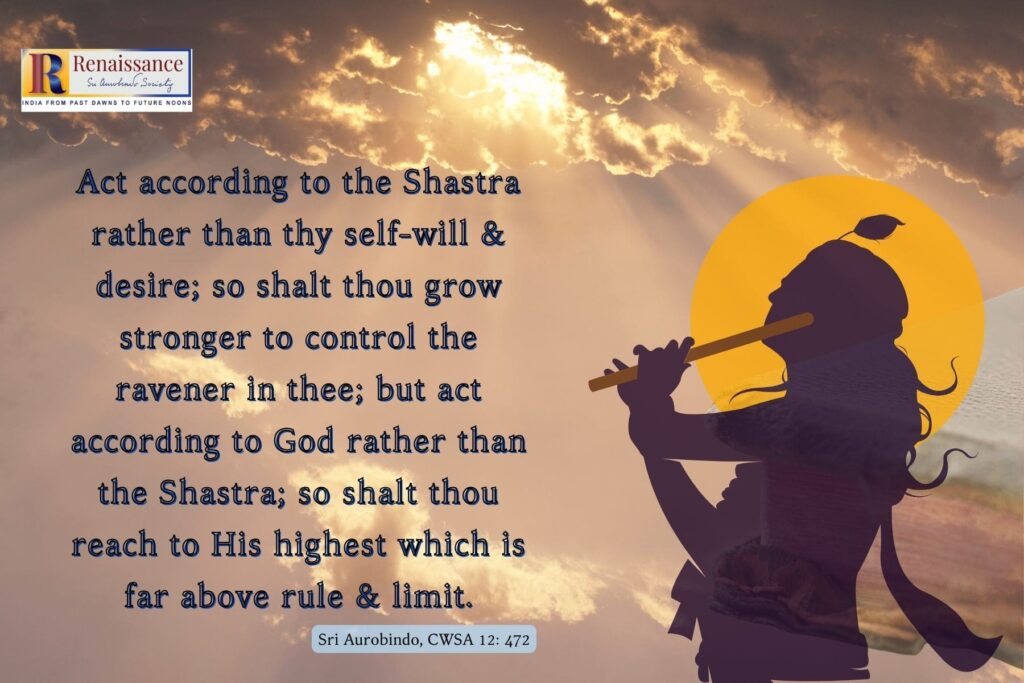
* * *
According to Sri Aurobindo, the truest reason we approach the scriptures is because we seek a Truth that is one and eternal, a Truth from which all other truth derives, by the light of which all other truth finds its right place, explanation and relation to the scheme of knowledge. Upanishads are the supreme work of the Indian mind, the highest self-expression of its genius, its sublimest poetry, its greatest creation of the thought and word.
Isha Upanishad, one of the shortest among the principal ones, is a masterly work which, in a deeper sense, lays the foundations of a Divine Life upon earth, says Sri Aurobindo. To carry on with our chosen theme of growing in wisdom, we begin a 6-part series titled “Sri Aurobindo on Isha Upanishad” by M. P. Pandit.
This month we celebrate Guru Pūrnima.
Our issue would not have been complete without paying our homage to our Guru and our Source, Sri Aurobindo and the Mother. While all our work at Renaissance is our humble offering to Them, to especially mark the occasion of Guru Pūrnima we have included a two-part article which speaks of the deeper significance of Guru-shishya parampara in Indian spiritual thought and practice. Selections from one of Nirodbaran’s talks, where he speaks of Sri Aurobindo as a ‘modern Guru’ bring in the essential dose of Divine Humour.
Our ‘Sādhanā’ for the month invokes a prayer from the Mother’s Prayers and Meditations, dated July 21, 1913. The second part of the ongoing series, titled “सर्वे सन्तु निरामयाः – May All be Free from Illness” by Rajeshwari also finds its due place in the issue.
We take this opportunity to announce that staring with August 2021, we shall be taking up the 12 Attributes of the Mother as our theme for the next year. We welcome submissions in the form of articles, short stories, reflections, contemplative pieces, poetry and artwork. We shall begin with the attribute ‘Sincerity’ for the August issue, releasing on August 15.
We hope our readers will enjoy going through this issue of Renaissance as much as we enjoyed putting it together. We thank you for your continued support.
As always, we offer this work at the feet of Sri Aurobindo and the Mother.
In gratitude,
Beloo Mehra (for Renaissance Editorial Team)
~ Graphic design: Rishabh Sharma & Beloo Mehra

